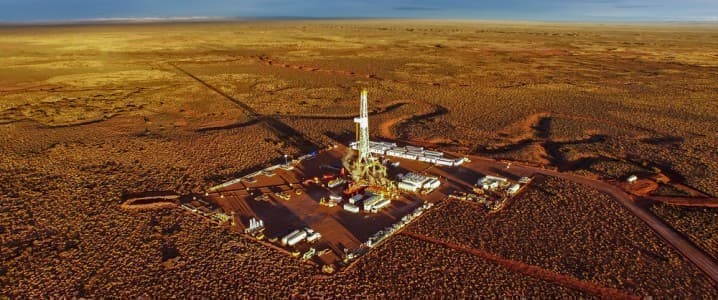The shale oil boom that began about 15 years ago enabled the fastest growth of oil and natural gas production in U.S. history. Prior to the onset of the Covid-19 pandemic, the shale boom even enabled the U.S. to briefly achieve energy independence — something that was unthinkable 20 years ago.
The shale boom was enabled by the marriage of two technologies: Horizontal drilling and hydraulic fracturing. The combination is typically referred to as simply “fracking.”
However, environmentalists have long contended that fracking threatens our water supplies. But anti-fracking sentiments have spawned a great deal of misinformation around the technique. Let me just point out that more than 1.7 million wells in the U.S. have been fracked. If they were a real threat to our water supplies, it would be readily apparent.
But a couple of things are true. One is that an improperly fracked well could result in contamination. For example, if an oil formation was fracked in close proximity to a freshwater aquifer, it could result in a migration of fracking fluids or hydrocarbons into the water. Of course, this is well-known, and operators don’t want to lose fluids into an aquifer, so this is never purposely done.
Second, it is possible for contamination to take place somewhere in the fracking supply chain. The public may blame fracking, when in fact it is a different issue entirely. For example, if a truck hauling fracking fluids crashes and dumps its cargo into a river, opponents will be quick to point the finger at fracking.
Related: Investors See Peak Demand Happening Much Further In The Future
There was a very well-documented case of an improperly cemented well-contaminating water in Dimock, Pennsylvania. In 2010, gas driller Cabot Oil & Gas was cited by the Pennsylvania Department of Environmental Protection for contaminating water wells with its Marcellus Shale drilling operations. Last year, Pennsylvania Attorney General Josh Shapiro announced 15 criminal counts against Cabot, including nine felonies, upon the recommendation of a grand jury. The company was charged with violating the state’s Clean Streams Law.
The Cabot case provides a perfect example of why fracking became controversial. The reason the water wells were contaminated was determined to be the result not of fracking fluids migrating from the fracking zone, but rather of the improper cementing of the gas wells. That could have happened whether the wells were fracked or not. But for opponents of fracking, this distinction was irrelevant: It was fracking that contaminated the wells.
But it is also true that fracking requires a lot of water. Millions of gallons of water can be required to frack a well, and that can make it especially challenging in arid climates.
An ideal solution that addresses the issues around water would be a waterless fracking technique. In fact, some work has been done in this area, but there hasn’t been widespread adoption of any technique that could replace, or even substantially complement fracking as a technique for completing a well.
By Robert Rapier for Oilprice.com
More Top Reads From Oilprice.com:
- Jittery Oil Market Could Trigger Consolidation In The Permian
- Oil Prices Under Pressure Despite An Optimistic Outlook
- The World’s Top Automakers Are Doubling Down On Electric Vehicles


















I saw a lot about it back when fracking was blamed for people being able to flare water right out of their home faucet. Some time has gone by since lighting off faucet water was in the news.
Seems like there would be more news about studies than what I'm seeing. Is re-injecting process water back into the ground for deep storage really working out so well?